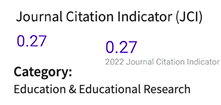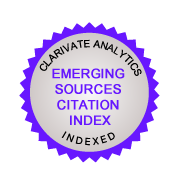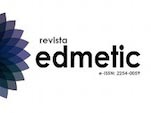From programming competitions to an educational pedagogy in La Paz (Bolivia)
DOI:
https://doi.org/10.20548/innoeduca.2016.v2i2.2034Keywords:
PROGRAMMING LANGUAGES, LEARNING PROCESS, TEACHING METHODSAbstract
The methodology for learning computer programming called competitive programming has it's origin in programming competitions, provides several advantages in the classes of the first programming courses in university education, by providing instant feedback to students. How to develop programming courses under this methodology and the benefits to students and businesses is presented.
This article starts with survey taken to 20 programming teaches in 7 private universities and one public. It shows the status of teaching programming in the city of La Paz Plurinational State of Bolivia, showing the feasibility of implementing this methodology. The results show that the feedback on programming assignments is directly related to student approval. This situation makes it very desirable to apply competitive programming as a pedagogical tool in teaching programming.Downloads
Metrics
References
Bierre, K., Ventura, P., Phelps, A., and Egert C., (2006). Motivating OOP by blowing things up: an exercise in cooperation and competition in an introductory Java programming course. Proceedings of the 37th SIGCSE technical symposium on Computer science education. ACM, New York, NY, USA, 354-358. DOI=http://dx.doi.org/10.1145/1121341.1121452
Burguillo, J., (2010). Using Game Theory and Competition-based Learning to Stimulate Student Motivation and Performance. Computers & Education, 55(2).
Buzdalov, M, (2011). Generation of tests for programming challenge tasks using evolution algorithms. Proceedings of the 13th annual conference companion on Genetic and evolutionary computation. Natalio
Krasnogor (Ed.). ACM, New York, NY, USA, 763-766. DOI=http://dx.doi.org/10.1145/2001858.2002086
Halim, S., Halim, F. (2013). Competitive Programing 3, Universidad de Singapure.
ICPC Fact Sheet (2016), Sitio web: https://icpc.baylor.edu/worldfinals/pdf/Factsheet.pdf
Jeong-Hoon J., Gyun, W., and Hwan-Gue, C., (2008). An experience of detecting plagiarized source codes in competitive programming contests. SIGCSE Bull. 40(3), 369-369. DOI=http://dx.doi.org/10.1145/1597849.138441
Llana, L., Martin-Martin, E., and Pareja-Flores C., (2012). FLOP, a free laboratory of programming. Proceedings of the 12th Koli Calling International Conference on Computing Education Research. ACM, New York, NY, USA, 93-99. DOI=http://dx.doi.org/10.1145/2401796.2401807
Luo, Y., Wang, X., and Zhang, Z (2008). Programming grid: a computer-aided education system for programming courses based on online judge. Proceedings of the 1st ACM Summit on Computing Education in China First ACM Summit on Computing Education in China. ACM, New York, NY, USA. DOI=10.1145/1517632.1517643 http://doi.acm.org/10.1145/1517632.1517643
Manzoor, S. (2008). Common mistakes in online and real-time contests. Crossroads 14(4), 10-16. DOI=http://dx.doi.org/10.1145/1375972.1375976
Nikov, A., Kulev, I., Cavkovski P., Misev, A., Trajkovik, V., and Trajanov, D., (2014). CodeFu: coding competition as a tool for industry university collaboration. Proceedings of the 2014 international workshop on Long-term industrial collaboration on software engineering ACM, New York, NY, USA, 63-68. DOI=http://dx.doi.org/10.1145/2647648.2647657
Ott, C., Robins, A., and Shephard, K., (2016). Translating Principles of Effective Feedback for Students into the CS1 Context. Transactions. Computer. Education. 16(1) DOI=http://dx.doi.org/10.1145/2737596
Petit, J., Giménez, O., and Roura, S., (2012). Jutge.org: an educational programming judge. Proceedings of the 43rd ACM technical symposium on Computer Science Education. ACM, New York, NY, USA, 445-450.
Quora (2016). What is competitive programming. Sitio web: https://www.quora.com/What-is-competitive-programming-2
RedGreenCode (2016). 12-reasons-to-study-competitive-programming, Sitio web: http://www.redgreencode.com/12-reasons-to-study-competitive-programming/
Skenia, S., Revilla Ramos, M., (2006). Concursos internacionales de informática y programación. Manual de entrenamiento por Internet. Springer, New York, USA.
Skupas, B., Dagiene, V., and Revilla,V., (2009). Developing classification criteria for programming tasks. Proceedings of the 14th annual ACM SIGCSE conference on Innovation and technology in computer science education. ACM, New York, NY, USA, 373-373. DOI=http://dx.doi.org/10.1145/1562877.1563015
Smith, D., Red Green Code, Sitio web http://www.redgreencode.com/
Wikipedia. (2016). Competitive programming, Sitio web: https://en.wikipedia.org/wiki/Competitive_programming
Wang, Q., Li, W., and Xie, T., (2014). Educational programming systems for learning at scale. Proceedings of the first ACM conference on Learning @ scale conference. ACM, New York, NY, USA, 177-178. DOI=http://dx.doi.org/10.1145/2556325.2567868
Downloads
Published
How to Cite
Issue
Section
License
All contents published by Innoeduca. International Journal of Technology and Educational Innovation are subject to Creative Commons Attribution-Nocomercial-NoDerivatives 4.0 International License, whose complete text can be consulted at https://creativecommons.org/licenses/by-nc-nd/4.0/legalcode. Thus, copying, distribution, public communication, derivative works and commercial use of content are permitted as of the aforementioned issue provided that the source and the author of the text are cited.
It is the responsibility of the authors to obtain the necessary permits for images that are subject to copyright.

This work is licensed under a Creative Commons Attribution-NonCommercial-NoDerivatives 4.0 International License.






1.jpg)


242.png)







